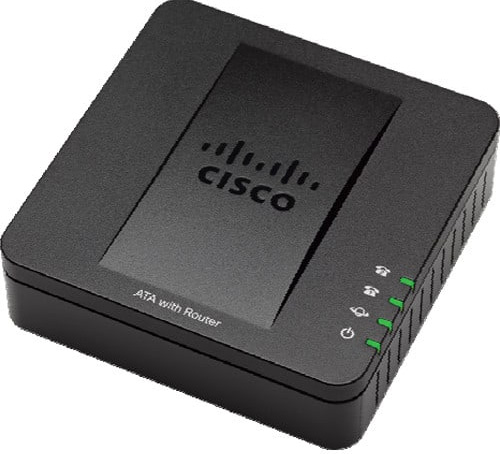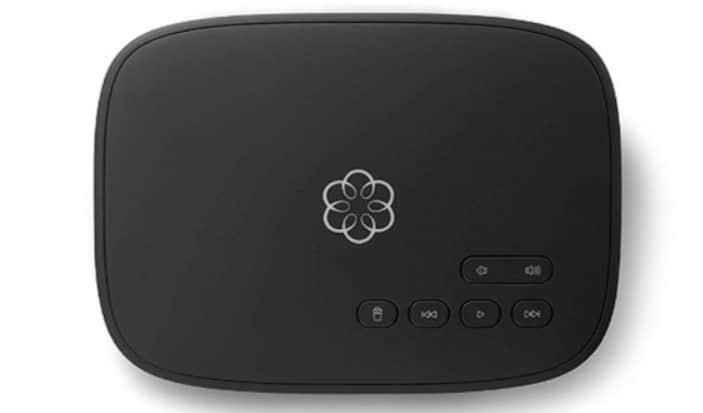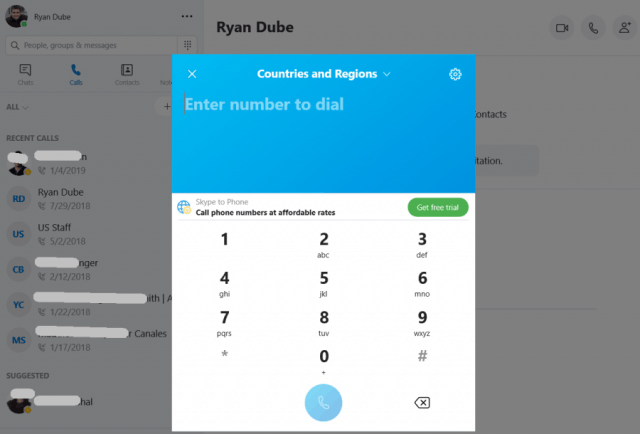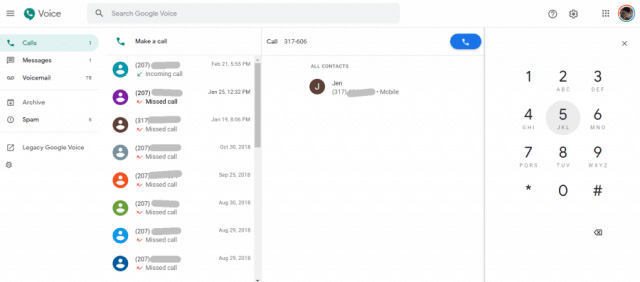Learn about Voice over Internet Protocol (VoIP)
Voice over Internet Protocol (VoIP) is a surprising technology that allows you to make calls over the Internet and reduce the cost of traditional phone calls. This article will cover some VoIP services, software that provides VoIP solutions, as well as advantages, disadvantages and VoIP security solutions.
Learn about VoIP
- So what is VoIP?
- VoIP with hardware (Phone)
- VoIP with analog phones
- VoIP with digital phones
- VoIP with hardware (Adapter)
- VoIP with software
- Pros and cons of VoIP
- VoIP security issues
- Security solution when using VoIP
So what is VoIP?
VoIP is short for Voice over Internet Protocol, which allows you to use an Internet connection to make calls. Instead of relying on the same line as traditional phone systems, VoIP uses digital and requires a high-speed broadband connection such as DSL or cable. There are many different providers offering VoIP and many other services. The most common application of VoIP for personal or home use is Internet-based telephone services with telephone switching. With this application, you still need to have a phone number, still have to dial to make a call like normal use. The person you call will not see any difference from the phone call from the traditional phone system. Many service providers also offer features to use your VoIP adapter wherever there is a high-speed Internet connection, allowing you to take it with you when traveling or traveling.
VoIP with hardware (Phone)
In an enterprise environment, the method of using VoIP is most commonly with traditional phones. There are many ways to apply VoIP technology with traditional analog phones, digital phones or VoIP phones.
VoIP with analog phones
Because voice transmission in VoIP takes place over the Internet, a regular phone does not have VoIP capability. However, there is an adapter called Analog Telephone Adapter (ATA) capable of converting analog phone signals into digital signals that can be transmitted over the Internet.

ATA adapter works with both analog phones (with traditional RJ-11 telephone jacks) or VoIP phones (with Ethernet RJ-45 jacks).
Here's how it works with traditional analog phones:
1. Signal is transmitted from analog phone to RJ-11 port of ATA adapter.
2. Then go from ATA adapter to Ethernet port that supports Internet.
3. ATA adapter communicates over the Internet with VoIP service.
4. VoIP service handles all voice communication back and forth between the Internet and your phone.
VoIP with digital phones
With a VoIP phone, you do not need to buy an ATA adapter to connect to the Internet, just plug the phone directly into the Ethernet port that supports the network. The phone communicates from the Internet to the VoIP service you have registered.

Advantages when using VoIP phones:
- One-button access to voicemail account.
- View phone logs on the digital screen.
- Quickly forward or hold calls.
- View phone numbers or caller's name via ID.
VoIP with hardware (Adapter)
Some hardware manufacturing companies can plug in an Ethernet jack in the house to convert standard phones into phones that can use VoIP. This hardware has a web portal used to view calls, check voicemail and set up integration with other services.

Some of the most popular VoIP-based hardware services include:
- Vonage : Vonage is a hardware device that plugs directly into the home router. Its usage is very simple, you just need to plug the phone into the Vonage Box to hear the dial tone and start making calls over the network. Your phone still works as usual but doesn't need to be charged anymore. The cost of making a call with this device is very cheap, ranging from 10 USD to 15 USD per month.
- Ooma : For only $ 99 you will own Ooma device and not have to cost anything else to be able to make free phone calls. Ooma works similarly to Vonage, just plugging the device into the router and phone. The biggest advantage of Ooma is that it integrates with IFTTT to help you automate smart home devices or receive notifications on mobile phones when receiving calls from certain phone numbers.
- MagicJack : The way MagicJack works is similar to the two devices above: plugging into the router and phone to make calls over the network. The difference is that you can plug the device into your computer and use the MagicJack desktop application to make calls right on your computer with headphones and microphones. It's cheaper than Vonage for only 39 USD / year.
There are many other VoIP-based hardware solutions for home users, but these are the three most popular devices.
VoIP with software
The cheapest way to use VoIP is to connect a headset with a microphone to your computer but require VoIP software to transmit your voice to the recipient using the same software. In addition, there are many VoIP applications that are capable of making standard phone calls.
Some of the most popular VoIP software applications:
- Skype : Skype features include video chat, instant messaging and phone calls (both domestic and international) over the Internet. Skype is free but low cost when making standard phone calls.

- Jabber : This service is increasingly gaining sympathy from businesses. It provides user calls, voicemail is sent directly to the email in MP3 format. In addition, it has features like message forwarding, group chat and screen sharing.
- Google Hangouts : Hangouts are very popular for business users because it has many features that are free. Features include text messaging, voice, video with one or more people. It also has Android and iOS mobile apps. You can also make standard phone calls but at low prices.

- Google Voice : For individual users who want to save money on phone calls, Google Voice is the perfect choice. It does not provide messaging, conference calling, but in return you can call locally for free from your computer or mobile device. When using this service, you will receive a free phone number or convert the current phone number to Google Voice. Incoming voicemail will be copied and saved in the mailbox in text and audio format.

See also: Instructions for creating VoIP calls directly from Google Voice
Pros and cons of VoIP
Some advantages of VoIP:
- Low cost.
- Provide more free services such as voicemail, call forwarding and text-to-speech transfer.
- Call rates are very low.
- Ability to transfer existing phone numbers with multiple cloud services.
- Many options are compatible with mobile phones.
- Integrate with other cloud services you may have used.
However, there are some limitations when switching to VoIP. You need to note these things before making a leap and dropping your traditional phone line.
Some disadvantages of VoIP:
- Call quality may be affected if other devices in the house are streaming.
- Calls may be canceled if the Internet connection is poor.
- When there is no Internet, you cannot make any phone calls.
- Some hardware solutions are limited to one phone per VoIP box.
See also: Improving Internet speed increases VoIP quality
VoIP security issues
Because VoIP is based on an Internet connection, it can have weaknesses for any threats and problems that your computer faces. This technology is also a new technology, so there is much debate about possible attacks, VoIP may also be attacked by viruses and other malicious codes. Attackers can block communications, eavesdrop and perform phishing attacks by manipulating your ID and spoiling your service. Actions that consume large amounts of network resources such as downloading files, playing online games . also affect VoIP services.
In addition to these problems, VoIP inherits the main problems in routing on broadband connections. Unlike traditional phone systems, you can call when the power is out. In a VoIP system, if the power is lost, VoIP cannot make a call. There are also some related issues that are home security systems or emergency numbers that may not work as expected.
Security solution when using VoIP
• Continuous software upgrade - If the software vendor provides patches for the operating system, you should install them immediately. That will prevent attacks that are taking advantage of weaknesses in software vulnerabilities.
See also: Security vulnerabilities - basic insights
• Use and maintain anti-virus software - Anti-virus software can recognize and protect computers against defined viruses. However, the attacker is always looking for ways to write new viruses, so you must regularly update the antivirus software.
• Make full use of security options - Many providers can provide encryption services. If your job involves many privacy and security issues, consider these available options.
• Installing and activating firewalls - Firewalls can prevent many types of intrusion by blocking malicious traffic before they enter your computer.
• Evaluate security settings - Both your computer and VoIP devices / software provide many different features that can be fitted to your requirements. However, allowing specific features can leave you with vulnerable vulnerabilities. So disable some features if you feel unnecessary. Check your settings, set up your own security and choose the options you need to avoid unnecessary risks.